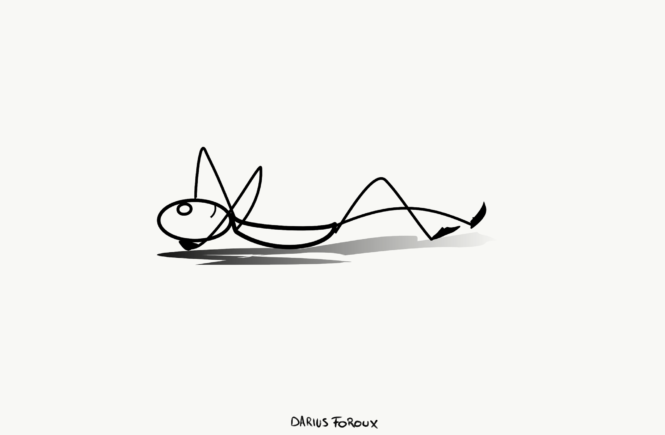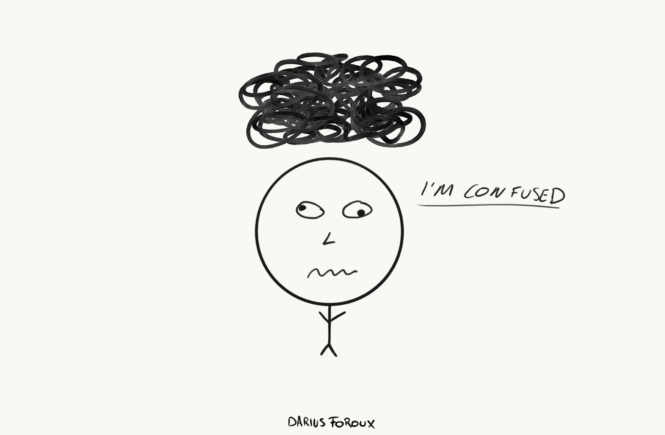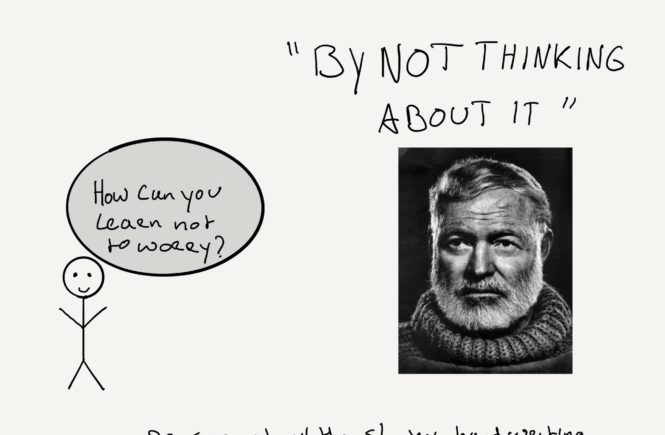There can’t be such a thing as a sleep hack, right? At least, that’s what I thought for years. But if there’s anything we should hack, it’s our sleep.
On average, you sleep 7 hours and 50 minutes per night. Considering that life expectancy for countries in the Western world is about 80 years—you’ll spend 26.6 years of your life asleep.
That’s almost 1/3 of your time on this planet. And yet, we feel tired so often. Just look at the person sitting next to you at the office, on the couch, or at Starbucks.
Sleep plays a big role in our lives—we depend on it. Have you ever had a bad day and said it was because of a lack of sleep? It sucks.
That’s why we’re obsessed with ‘sleep hacks’ and listicles that promise us to sleep like a third grader that has nothing to worry about.
For the past 12 months, I’ve experimented with many things that should improve your life — one of the aspects that I focused on was sleep.
I’ve kept a spreadsheet since January of this year—every day I write down what time I went to sleep and woke up. I also rate my energy level during the day on a 1–10 scale.
On my scale, a 1 means doing absolutely nothing but eating and drinking. A 10 means doing 10 hours of focused work and 2 hours of exercise while traveling to the other side of the world (this almost never happens).
When I started, most days were a 6 — that means about 4–5 hours of real work, browsing the web, reading news articles, checking my social media accounts, watching TV, hanging out. Pretty average stuff.
I asked myself, “How can I become an 8 every single day?” I’d rather be an 8 every single day than to be a 5 one day, and a 10 the other—consistency is my goal. An 8 for me means 5–6 hours of productive work, 1–2 hours of exercise, and being in a good mood all day.
Sleep Hacks That Didn’t Work
I started by doing research on the web. I found dozens of articles with advice that everyone kept repeating.So let’s talk about what DIDN’T have an effect on the quality of my sleep and energy level.
- Track your sleep — I used the Sleep Cycle app to track my sleep. The app works fine and looks nice. But having all this data didn’t help me sleep better.
- Read a book — I love books, and I read a lot. If I have to recommend something to do before sleeping this would be it. But reading didn’t always help me fall asleep. More often than not, I was wide awake after reading an awesome book. Reading is good, but not a game-changer.
- No screens before bedtime — I get the whole melatonin thing. But if I want to read a text from my friend at 11.05, I will.
- Crack a window — Not in the winter, thank you.
- Drink tea — I like tea, but this had no effect on sleep whatsoever.
- Sleep with a notepad — Every evening I plan my next day, so this becomes obsolete. I already know what I’m going to do tomorrow, so I don’t have to write down things that keep me up. And when I go to bed, I don’t want to write, I want to sleep.
- Have a bath — I only have a shower.
- Change your sheets — I want to sleep well every day. Do I have to change my sheets every day as well?
STOP WORRYING ABOUT SLEEP!
That’s the only sleep hack you need. I read this sleep hack in How To Stop Worrying And Start Living by Dale Carnegie. A book that was published almost 70 years ago.
You probably know this feeling when you go to bed way too late: “Tomorrow will be tough. I’m only getting 5 hours of sleep.”
Well, you reap what you sow. When you tell yourself you’ll be tired tomorrow, guess what, you’ll yawn all day.
When you change your belief about sleep, you’ll no longer depend on it. Casey Neistat, founder of Beme app and YouTuber, runs a tech company, has a family, and creates a movie every single day. He clearly doesn’t depend on sleep.
“Sleep is my greatest enemy. Every morning is war. Usually I emerge victorious.”
– Casey Neistat
We use a lack of sleep as an excuse to be lazy or procrastinate. I bet you’ve done this too: “I’m too tired for X. I’m going to watch Game of Thrones instead.”
The truth is that no one ever died after one bad night of sleep. I’m not an advocate of sleeping less than 7 hours. In fact, research shows it is harmful to your health when you always have a sleep deficiency.
But if you get less sleep every once in a while, it is not the end of the world. You can still be effective if you’ve slept 5 hours one night. Just don’t make it a habit.
Next time you go to bed late because of a party, or you were working on your dream — tell yourself you’ll feel good in the morning.
Since I’ve applied Carnegie’s advice, my energy level is consistently an 8. It still happens that I can’t fall asleep, but I don’t make a big deal out of it—I stop my thoughts about sleep and think about something else.
The point with sleep is not to overthink it. When you stop giving sleep attention, you can focus on what matters—to get some rest so you can wake up full of energy the next day.
What’s your best sleep hack? Share your tip in the comments and maybe we’ll improve our sleep even more.




